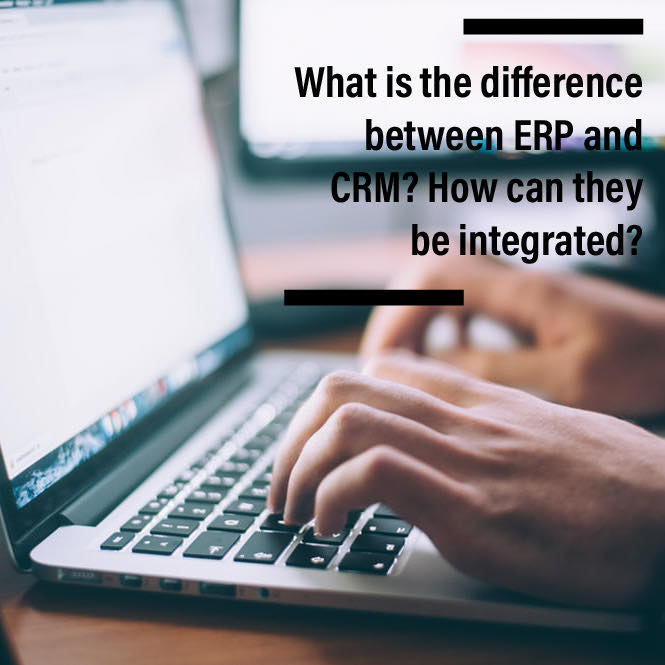What is the difference between ERP and CRM? How can they be integrated?

Today’s technology gives companies an advantage they have never had. With the ability to streamline processes and access data in real-time, companies can stay on top of their competition. In addition, today’s data analysis technology allows companies to foresee future events and plan accordingly. These tools, which include both enterprise resource planning software (ERP) and customer relationship management (CRM) software, give companies the power to control their success in today’s market. While similar at first glance, ERP and CRM platforms are distinctively different. Understanding each platform is critical to your system’s success.
What is ERP?
First and foremost, ERP software is designed to make a company’s processes more effective and efficient. By better managing all the key functions of a company—accounting, warehouse, inventory and supply chain—ERP software allows the company to focus on what really matters: the data. With integrated ERP software, employees can update the platform with important information available in real-time to all departments within the company.
Properly utilized, ERP can help your team:
- Enter and track real-time business process information within and across departments
- Alert team members when issues elsewhere in the company may affect them
- Plan department- and enterprise-level strategy based on enterprise-wide knowledge
- Process orders, update accounts, and trigger automatic alerts to fulfill and bill those orders
- Manage manufacturing and supply chains while creating records and alerts at every step in the process
- Track recruiting and hiring initiatives
- Manage payroll, benefits, and personal information for employees
What is CRM Software?
CRM software fulfills the customer side of the system. Customer relationship management systems focus on just that: customers. This software manages customer information and captures all relevant details for the company. This information is used across the board, from sales reps to managers to accounting personnal. By properly managing customer information, companies can build their customer relationships to increase customer loyalty and ultimately, revenue.
ERP and CRM Integration
ERP and CRM systems both manage important information for your company. While both software systems manage different information, their integration is critical. The benefits of ERP and CRM integration are many, including ensuring an optimal return on your investment in both platforms. The information captured by both platforms helps employees make better decisions. For example, a sales rep could not make an effective sale without leveraging both CRM and ERP. Without CRM, the rep may miss out on information crucial to that client’s sale. Without ERP, the sale has the possibility of not being communicated to accounting, production, and/or warehouse departments, creating a mess that could result in unmet client expectations.
Ultimately, integration between ERP and CRM ensures that your customers’ expectations—and your company goals—are met. This integration guarantees that all departments in your company are working together. Without ERP and CRM integration, your company stands the risk of being lost in communication.
References:
https://www.quora.com/What-is-the-difference-between-ERP-and-CRM-How-can-they-be-integrated
https://www.azamba.com/2019/07/02/crm-vs-erp-whats-the-difference-which-best-small-medium-business/
https://www.positivevision.biz/blog/bid/132694/erp-vs-crm-software-what-s-the-difference/
| Tweet |